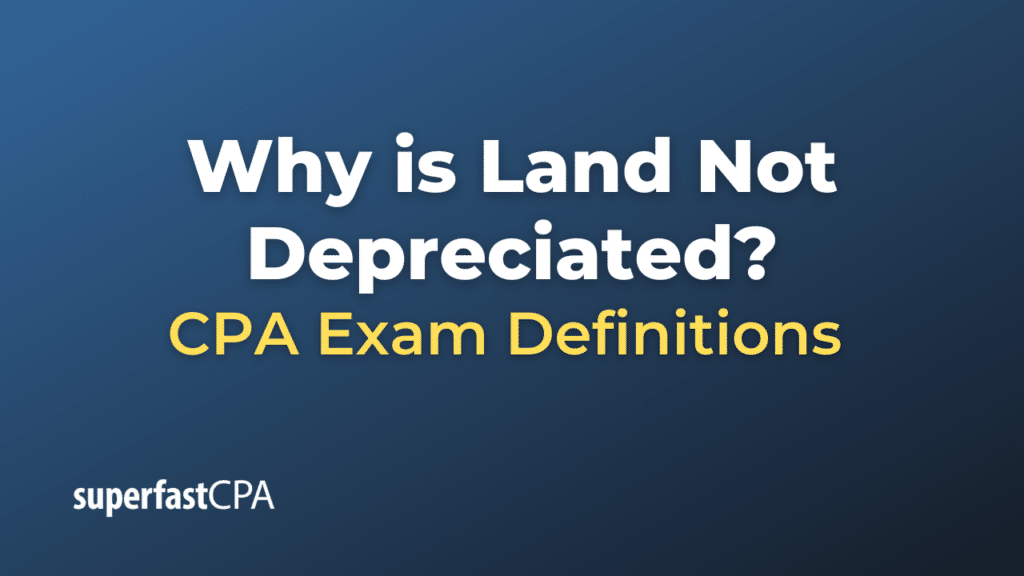Why is Land Not Depreciated
Land is not depreciated because it is considered to have an indefinite useful life. Unlike other assets like buildings, machinery, or vehicles, land does not wear out, become obsolete, or lose its utility over time. Therefore, it doesn’t gradually transfer its value to the income statement in the form of depreciation expense.
Here are some key reasons why land is not depreciated:
Indefinite Useful Life:
- Land lasts indefinitely and does not have a finite useful life like other depreciable assets. It doesn’t suffer from wear and tear due to usage or become outdated due to technological advancements.
Value Appreciation:
- In many cases, the value of land appreciates over time, unlike other assets that lose value (depreciate).
Accounting Standards:
- Generally Accepted Accounting Principles (GAAP) and International Financial Reporting Standards (IFRS) both stipulate that land is not a depreciable asset.
Simplicity:
- Not depreciating land simplifies accounting records. You don’t need to track accumulated depreciation or calculate depreciation expenses for land, making it easier to manage.
Tax Considerations:
- Because land does not depreciate, you can’t take a depreciation expense deduction for it when calculating taxable income, which is consistent with its treatment in financial accounting.
When a company buys land with an old building on it, with plans to tear down the building and build a new one, the cost of the land and the old building is often segregated. The land is not depreciated, but the cost allocated to the old building will be depreciated over its remaining useful life or written off when it is demolished.
In summary, land is not subject to depreciation because it does not meet the criteria for a depreciable asset: it has an indefinite life and does not lose its value from use in business operations over time.
Example of Why is Land Not Depreciated
Let’s consider a simple example to illustrate why land is not depreciated.
ABC Company purchases a piece of property for $1 million. The property consists of a plot of land and a building on it. After an appraisal, it is determined that the land is worth $700,000 and the building is worth $300,000.
Accounting Entries:
- Initial Purchase: ABC Company records the purchase.
- Debit: Land $700,000
- Debit: Building $300,000
- Credit: Cash $1,000,000
Depreciation:
The building has a useful life of 30 years with no residual value. Therefore, annual depreciation on the building would be $300,00030=$10,00030$300,000=$10,000 per year.
- Annual Depreciation for Building:
- Debit: Depreciation Expense $10,000
- Credit: Accumulated Depreciation on Building $10,000
Balance Sheet at the End of Year 1:
- Land: $700,000 (No depreciation)
- Building: $300,000
- Less: Accumulated Depreciation on Building: $10,000
- Net Book Value of Building: $290,000
As you can see in the above example, only the building is depreciated, not the land. The land continues to be reported at its original cost of $700,000 on the balance sheet. The building, on the other hand, is reported at a net book value of $290,000 after accounting for one year of depreciation.
Why No Depreciation on Land?
- Indefinite Useful Life: Land has an indefinite useful life, so it doesn’t get worn out or obsolete over time.
- Value: Land can actually appreciate in value, and it doesn’t make sense to depreciate an asset that can gain value over time.
This example shows how land and buildings are treated differently in accounting. The building is a depreciable asset, and its value is reduced on the balance sheet over time through depreciation. The land, however, remains on the balance sheet at its original cost because it is not subject to depreciation.













